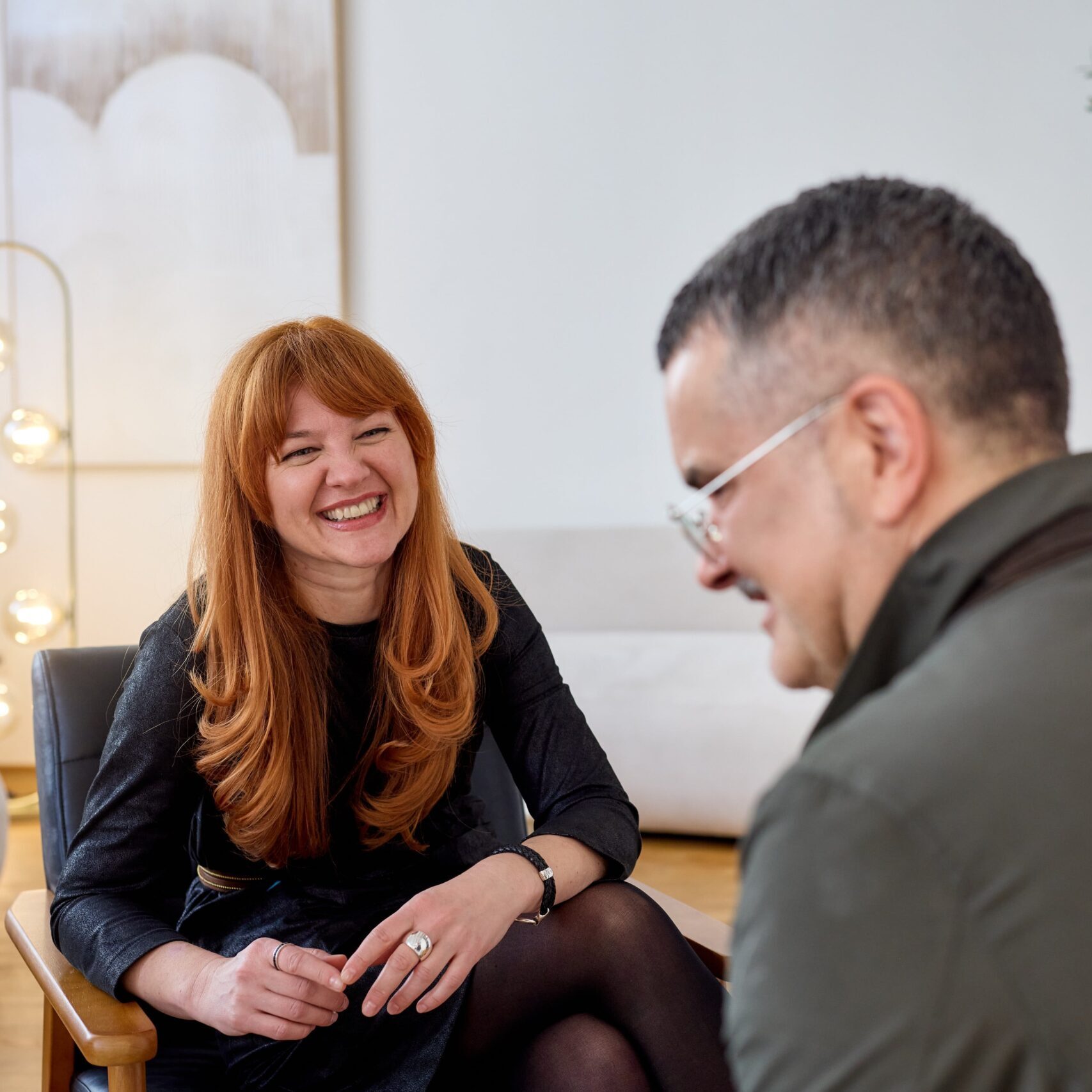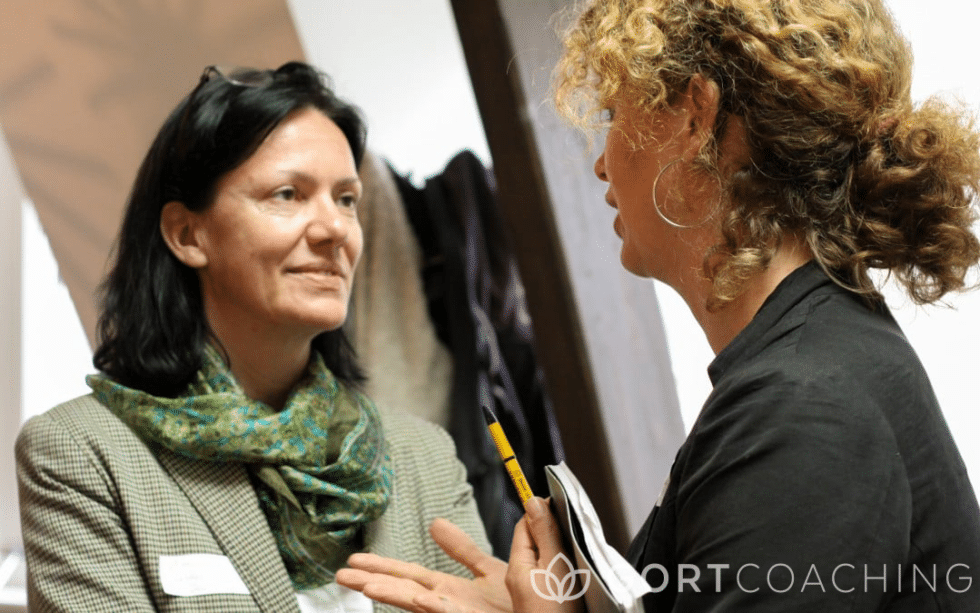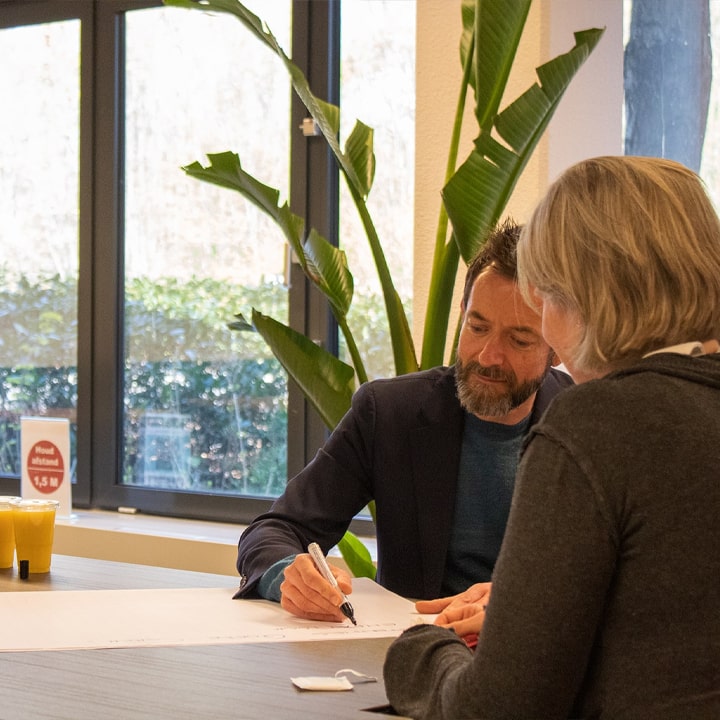Therapy and Coaching for Internationals
These therapists combine therapy and coaching.

Use the filters to find a therapist who suits you.
Read all about the rates & reimbursement options here. Can’t figure it out yourself? We’re happy to help! – ☏ +3188 170 1500
 Senior Coach
Senior Coach
Enthusiastic, honest, analytical, and results-oriented.
Enthusiastic, honest, analytical, and results-oriented.

Rates and reimbursement options
Are you curious about the costs and how you can possibly get the process reimbursed? We are happy to explain it to you!

Coaching and therapy: a powerful combination
More and more working people are choosing to seek help themselves when they feel stuck, tired of fighting against themselves, or simply unsure of what they want or feel. Not because they are “sick,” but precisely because they take themselves seriously.
At GORTcoaching, we combine therapy and coaching to help you grow, reflect, and achieve your goals. Our psychologists and therapists address emotional challenges, uncover underlying patterns, and work with you on practical strategies for life and work abroad.
Whether you want to grow, recover, or just pause for a moment—we offer guidance in a way that suits you.

Who is therapy at GORTcoaching suitable for?
Our programs are designed for working adults who are mentally healthy but who encounter recurring patterns or inner obstacles. You can come to us for issues such as:
✓ High sensitivity (HSP)
You experience stimuli intensely, quickly feel overwhelmed or emotionally exhausted in social or work situations.
✓ Impostor syndrome
You perform well, but continue to doubt yourself. You are afraid of being exposed as a fraud and experience constant pressure.
✓ Burnout or exhaustion
You are exhausted, have difficulty concentrating, or are ‘always on’. We guide you through your recovery and help you build resilience.
✓ Giftedness or high intelligence
You think deeply and quickly, but often feel misunderstood. You seek guidance in finding meaning, relationships, and career choices.
✓ Perfectionism, worrying, need for control
You have difficulty letting go, are hard on yourself, or experience chronic anxiety.
✓ Self-doubt, gloominess, or anxiety symptoms
You experience a feeling of emptiness, restlessness, or inexplicable tension, but on the surface you appear to be functioning ‘normally’.

When coaching and therapy can help you most
Therapy combined with coaching is right for you if you:
Work and notice that stress is sapping your energy
Do you experience prolonged work pressure, perfectionism, or difficulty setting boundaries? Our therapists will help you gain insight into your stress patterns and offer tools to help you regain your footing.
Feel lost in your work or environment
Do you experience friction in the workplace, clash with colleagues, or feel out of place? Then therapy is a good step toward regaining clarity and control – without judgment, but with concrete growth.
Searching for who you are and where you want to go
Are you stuck on issues such as imposter syndrome, high sensitivity (HSP), giftedness, or questions of meaning? Our therapists combine psychological insights with coaching reflection to help you better understand yourself.
In a transition or phase of life that raises questions
Whether it’s a new job, a career change, or a personal transition or moving abroad – we help you deal with uncertainty, grief, or change, and guide you toward clarity and control.

What is the difference between a therapist, psychologist, and coach?
At GORTcoaching, we work with coaches, therapists, and psychologists – each with their own specialization and approach, tailored to your specific needs.
- A coach helps you achieve personal or professional goals. Think of career questions, leadership development, or work-life balance. The focus is on reflection, behavior, and action.
- A therapist guides you in processing deeper emotional issues such as stress, perfectionism, high sensitivity, or unresolved experiences. Therapy often goes deeper and helps break through stubborn patterns.
- A psychologist at GORTcoaching is university-trained and combines psychological knowledge with coaching techniques. Psychologists can guide you through complex issues such as burnout, existential doubts, or mental exhaustion – without the need for a mental health diagnosis.
At our organization, the roles are sometimes intertwined: many of our professionals are both coaches and therapists or psychologists, so you receive guidance that suits your needs and your pace of development.

When should you see your doctor for a referral?
In some situations, it is wise to see your GP first. For example:
- You are experiencing severe depression or suicidal thoughts
- You suffer from panic attacks or generalized anxiety disorder
- You suspect you have a mental disorder that requires an official diagnosis
- You want your treatment to be (partially) reimbursed by your health insurance
Your GP can then refer you to a mental health psychologist in primary or specialist mental health care. Please note: this route involves waiting times, mandatory registration, and often less freedom of choice in treatment.

Pay for it yourself or through your employer?
More and more working professionals are choosing to invest in therapy or coaching themselves – sometimes out of their own pocket, but often with support from their employer. Many organizations make development or training budgets available that you can use for a program that helps you feel better about yourself, function more resiliently, and enjoy your work more.
- Important to know: the content of the program always remains strictly confidential. An employer will never have access to what is discussed – only that coaching is being followed, when this is necessary for administrative purposes.
The advantages of a program outside of regular mental health care:
- No long waiting lists
- No file with your health insurance company
- Complete control over duration, frequency, and content
- Coaching and therapy combined in one program
Together with your coach or therapist, you decide how often you meet, what the goal is, and which approach suits you best. This keeps the program flexible, personal, and focused on your development.

WHAT DOES THERAPY AT GORTCOACHING LOOK LIKE?
A program at GORTcoaching is always tailor-made. Together with your therapist, you determine the goal and the form of the program. Our therapists combine psychological depth with a coaching approach, so that you work on insight and development.
Introduction:
In a no-obligation introductory meeting, you explore your needs, goals, and the approach that suits you best. You also see if there is a good connection.
The program:
You will work with conversations, reflection assignments, and, where appropriate, a test or analysis. In the meantime, you will reflect on your progress together and adjust the process where necessary. Our therapists work with ACT, RET, mindfulness, and motivational interviewing, among other things.
Final meeting:
At the end, you will look back: have you achieved your goals? Where are you now and what else do you want to develop?

Do You Have Any Questions?
Hello, I am Cheryl, Coaching Advisor at GORTcoaching. I can assist you in selecting the right life coach and can schedule your free orientation session by phone.
☏ +3188 170 1500
I would be happy to assist you!
Interesting articles
Frequently asked questions about therapy
Which therapeutic approach is used?
At GORTcoaching, various therapeutic approaches and techniques are used, such as solution-focused therapy, mindfulness, ACT, and more. The specific approach may vary depending on the therapist and the needs of the client. It is recommended to have a conversation with the therapist to learn more about the approach they use.
Is therapy confidential?
Yes, therapy is confidential. Therapists at GORTcoaching adhere to a strict ethical code and keep all information shared during therapy private. However, there are legal exceptions, such as reporting child abuse or if there is a risk of self-harm or harm to others, where the therapist may be required to share information with relevant authorities.
What can I expect during a therapy session?
During a therapy session, various activities may take place, such as conversations, sharing thoughts and feelings, exploring personal challenges, and working on goals. The therapist will create a supportive and confidential environment to talk openly and work together on personal growth and well-being.
What are the costs of therapy?
The costs of therapy can vary depending on the therapist, the duration and frequency of sessions, and the location. It is advisable to contact GORTcoaching directly and check with your health insurance for specific information about the costs.
How often do therapy sessions take place?
The frequency of therapy sessions can vary depending on the needs and availability of the client. In many cases, sessions are held weekly, but this can be adjusted to the individual situation. Some clients may choose to schedule sessions less frequently, for example, every two weeks.
How long does therapy last?
The duration of therapy varies and depends on several factors, such as the nature of the issues, the goals of the client, and the therapeutic approach. Some therapies may last a few weeks, while others may continue for several months or longer. The therapist will work with the client to create a treatment plan and discuss an estimated duration of therapy.

 Nederlands
Nederlands Vlaams
Vlaams Deutsch
Deutsch










